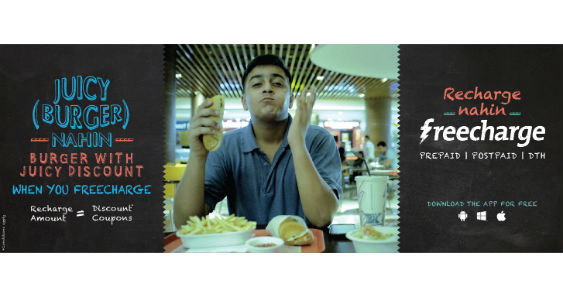MUMBAI, INDIA – McCann Worldgroup Asia Pacific Chairman, Prasoon Joshi, shared his insights on the impact of COVID-19 to creativity in a writeup originally published on the Times of India.
In testing times, creativity for some is an aspect that’s either not critical in the hierarchy or just a straw to hold on to. For sure, what’s most needed now is individual responsibility and relief effort. But for some, creativity is required most in difficult and trying times – for it’s imaginative, innovative thoughts and ideas that lead to new concepts, solutions or at least, succour.
However, we need to understand here the difference between manufactured creativity and self-expression. The former – the designed creative product – could see its acceptability decreasing. But for that which is authentic, this journey will see some new milestones.
Because when the fight is for survival, then organic creativity gets intensified, and tries to align itself with the human yell, the human cry for existence. It tries to rummage through an array of emotions and amplify ones which rekindle fundamental faith in life.
But there’s a different challenge today. We’re living in times where the attention span of the human race has drastically declined, to an average of eight seconds, with some studies putting it as less than that of a goldfish. We hear a lot about ‘message front loading’ in communication these days, ie, say important things in first few seconds of the message.
However, away from workaday chaos, an opportunity for time to self presents itself. An ability to live with oneself is a prerequisite for introspection and creativity. Stillness in itself is an art which we have been losing consistently over a few generations. Staying put in one place is making us face things which we either felt were unimportant or had lost their meaning for us. We can see and sense that gradually people are walking onto emotional roads rarely travelled.
Early days yet, but this can impact the very temperament of creativity. From in a hurry/ on the go capsule art, we might move to more gravity, more ‘thehraav’. We could see a rebirth of the nuanced. From a generation of ‘jaldi moti baat batao’ to ‘zara aaram se bareek baat samjhao’. A shift from a sharp point to a gentler shade.
The atmosphere prevailing in our society has been conducive for art and commerce to walk far too closely with, in fact, the latter leading. There were far too many market considerations: growth of new consumer segments, research on what the consumer wants, art that would be lucrative to create, buy or invest in. The market was the driving force and creativity was becoming made to order, to be ‘sold’.
It’s when the unprecedented faces us – terror attacks, systemic failures of sociopolitical structures, natural calamities – that creativity revisits its spontaneous state. The overwhelming emotion lets creativity follow a natural course, not directed as much by market considerations.
Harsh circumstances have often been conducive for varied art forms to emerge and thrive. Insecurity, angst and vulnerability are tipping points for inspired thought and expression. In 2001, during Argentina’s economic and social crisis, spray painted stencil art was frugally used to make ‘spontaneous murals’ by anonymous artists using x-rays found in trash.
Human creativity has indeed peaked between a crumbling present and a rising future. Even though change is constant, in art it tiptoes and takes time to reach the state of well-internalised expression.There are phases to a change, the initial response will have a sense of denial and one would assume it’s just a time bound disruption, but in next phases the new truth matures.
I also see the possibility of rediscovering what’s forgotten, this is going to be true not only for ideas and creativity but also for relationships. We’ll go through our emotional cupboards and perhaps chance upon that forgotten letter of a long gone relative with fading ink and who knows, which sentence comes alive, which chapter of life becomes tactile and embraces you with its genuine granularity.
I am hopeful for the rebirth of nuance, the ‘sukshma’ or the minute, hopeful that we will dip into our deeper selves which will redefine our moral universe and priorities. The immediate is alarming but the human race knows deep down that this is a much needed wakeup call. The reflection of which will be seen in what we henceforth create and consume.
About the Author
At present Prasoon Joshi is the CEO &CCO of McCann Worldgroup India, with additional responsibility as Chairman McCann Asia Pacific.
In an era where the lines between conventional advertising, entertainment and content are blurring, Prasoon is widely recognized as one of the most unique voices to make his mark in the complex landscape.
An MBA with a Masters degree in Physics, Prasoon wields his pen with great panache. Prasoon wins Cannes Lions, is designated as a “Young Global Leader” by the World Economic Forum in Davos and wins awards as a screenwriter and composer of songs.,
Under his leadership, vision and craft, McCann India has become a powerhouse that has the pulse of this diverse market of 1.3 billion consumers.
Prasoon has helped to cement McCann India’s stellar reputation as a company that combines the best of the local and global understanding. Prasoon’s focus on creative excellence is proven year in and year out by honors in Cannes, by winning the first D&AD Gold Award in India and in winning Grand Prix awards in multiple international awards show. McCann India has been rated as the Number 1 creative agency by The Gunn Report for three consecutive years.
Prasoon’s campaign for HappyDent gum, “The HappyDent Palace,” was ranked as one of the “Top 20 Campaigns of the 21st Century” by The Gunn Report. He created defining work for mainstream brands such as Reckitt Benckiser, Coca Cola, MasterCard, J&J, Perfetti, Nestlé, GM, MetLife, Pears and Star TV; regional and national campaigns for NDTV, Dabur and Britannia; and socially relevant campaigns for causes that included malnutrition, polio eradication, women’s empowerment and the Clean India Mission. All of this work has won accolades and found deep, powerful consumer connections.
Prasoon has served as Titanium and Integrated Jury President at the Cannes Lions Festival of Creativity and has chaired or served on juries for national and international awards shows that include The One Show, D&AD, The Clios, Spikes Asia and, Adfest. He edited The Gunn Report in 2013 and serves on the board of the One Club.
In addition to his legacy in advertising, Prasoon is an award-winning writer who has twice been honored with the prestigious National Award by the President of India. Prasoon has authored four books — his first at the age of 17 — and is working on his fifth.
Prasoon is deeply respected for his contribution to popular culture and in framing public consciousness in India through his work and content creation across advertising, poetry, songwriting and cinema. In recognition of all these varied contributions, Prasoon was honored with The Padma Award by the Indian Government, one of the highest civilian honors in the country.










